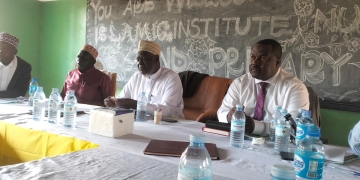
HOIMA, UGANDA – Stakeholders from Hoima’s local government, private sector, and civil society organizations have called on the government to expand access to clean energy sources like electricity and LPGs to facilitate the country’s transition from biomass and achieve its green growth strategy.
Despite Uganda’s capacity to generate and export electricity to neighboring countries, access and affordability remain significant challenges for rural areas and a large portion of the population.
During a policy dialogue hosted by the EfD-Mak Center in Hoima, themed “Energy Efficiency and Reduced Emissions in Uganda: Facts and Prospects,” stakeholders highlighted the necessity of addressing these challenges.
Prof. Johnny Mugisha, Deputy Director of the EfD-Mak Center, emphasized the importance of holding the dialogue in Hoima due to the region’s developments in energy. “The energy we are talking about includes firewood, charcoal, petroleum, electricity, and many others. We deliberately chose Hoima because of the energy developments here, and we are looking forward to petroleum-sourced energy,” Mugisha explained.
Dr. John Sseruyange presented key insights on Uganda’s path to energy efficiency and reduced emissions, highlighting the critical role of energy efficiency and emission reduction in transforming Uganda into a modern, prosperous nation. He warned of the dangers of biomass reliance, noting that Uganda’s forest cover has decreased from 24% in 1990 to 9% in 2015 due to tree cutting for firewood and charcoal.
Harriet, the district natural resources officer, stressed the importance of education on the benefits of using clean energy technologies. “Education on the benefits of using these technologies is crucial,” she said.
Dr. Ilakur John emphasized the need for public sensitization on the importance of clean energy, stating that cultural perceptions that clean cooking energies are for the rich and lazy further hinder the transition.
Participants proposed interventions to enhance the transition to green technologies, including public education and awareness programs, regulation to address quality standards, subsidies for manufacturers and consumers of clean energy sources, and expanding access to electricity and LPGs in rural areas.
The dialogue aimed to promote discussions around biomass and clean energy, addressing challenges and proposing solutions to inform policymakers for decision-making and implementation.










